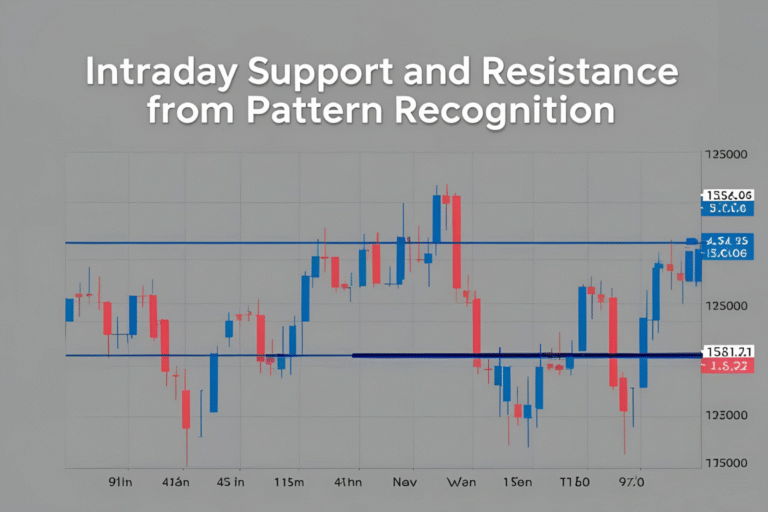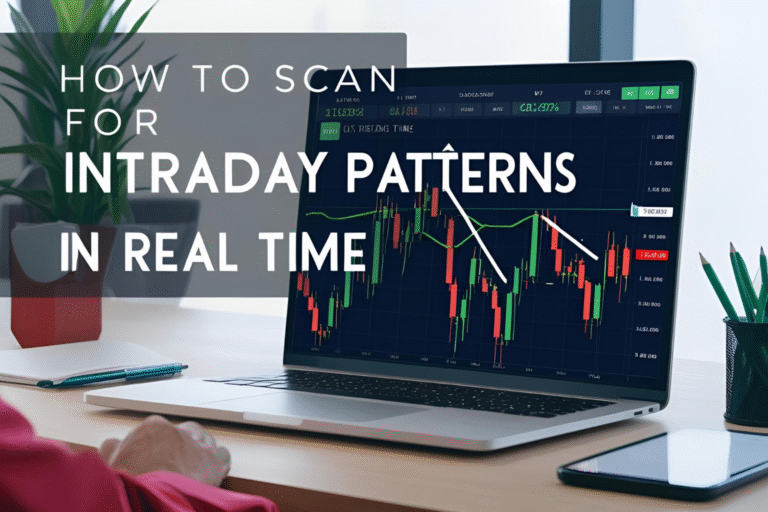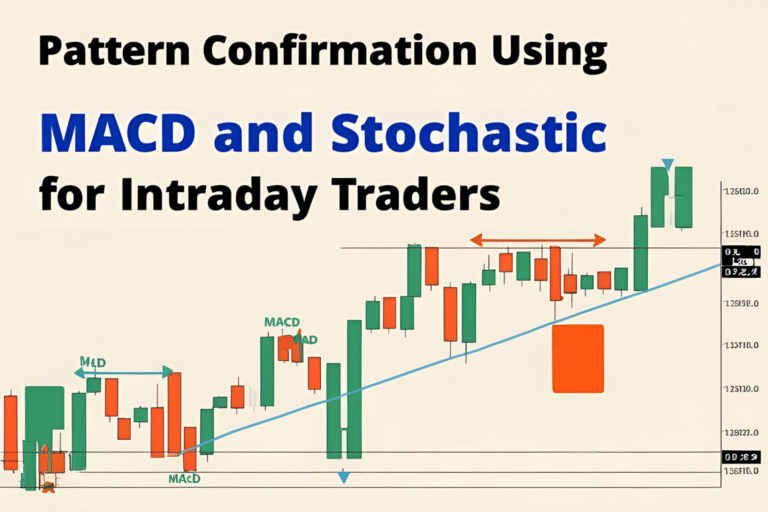Timeframes for Intraday Pattern Trading: 1-Min, 5-Min, 15-Min Compared
Choosing the right timeframe is a crucial part of intraday pattern trading. The chart you use affects your entry speed, pattern clarity, and risk management. In this guide, we compare the 1-minute, 5-minute, and 15-minute timeframes to help you select the one that suits your style and strategy best.
Why Timeframe Selection Matters
- Too short: More signals, more noise, higher risk of false entries.
- Too long: Fewer signals, delayed entries, wider stop-loss.
- Just right: Balanced view of trend, pattern clarity, and risk control.
1-Minute Chart (Ultra-Short-Term)
Best for:
- Scalpers
- High-frequency setups
- Quick entries/exits within minutes
Advantages:
- Fast signals
- More setups per session
Drawbacks:
- High noise
- More fake patterns
- Requires intense focus and quick reaction
Use With:
- Flag patterns
- Micro breakouts
- Momentum candles near VWAP
5-Minute Chart (Most Popular)
Best for:
- Active intraday traders
- Balanced speed and accuracy
Advantages:
- Clear pattern formation
- Less noise than 1-min
- More trades per session than 15-min
Drawbacks:
- Still fast-paced
- Requires quick decision-making
Use With:
- Triangle patterns
- Bullish/bearish engulfing
- Double bottom/top near support/resistance
15-Minute Chart (Short-Term Swing-Intraday)
Best for:
- Precision entries
- Strong confirmation
- Traders who hold for hours, not minutes
Advantages:
- More reliable patterns
- Strong confirmation signals
- Better suited for large-cap stocks or index trades
Drawbacks:
- Fewer setups per day
- Larger stop-loss range
Use With:
- Head & shoulders
- Cup and handle
- Triangle breakouts with volume confirmation
Which Timeframe Should You Use?
| Trader Type | Recommended Timeframe | Reason |
|---|---|---|
| Scalper | 1-Min | Fast trades, quick profits |
| Pattern Trader | 5-Min | Best balance of signals & accuracy |
| Precision Trader | 15-Min | Fewer, stronger setups |
Pro Tips
- Use multi-timeframe confirmation (e.g., pattern on 5-min, trend on 15-min).
- Match your risk tolerance and screen time to the chart speed.
- Practice your strategy in replay mode before going live.
Final Thoughts
No timeframe is “best” for everyone. It depends on your style, speed, and strategy. The 5-minute chart is ideal for most intraday pattern traders, offering a good mix of clarity and opportunity. Experiment with all three to find what works best for you.
FAQs
Which timeframe is best for intraday pattern trading?
The 5-minute chart is the most commonly used for a balance of reliability and signal frequency.
Is 1-minute trading too risky?
It can be. It requires strict discipline, fast reaction, and high-quality setups to succeed.
Can I mix timeframes?
Yes. Many traders use the 15-minute chart for trend direction and the 5-minute for entry.
Are patterns more reliable on higher timeframes?
Yes, but they offer fewer signals. It’s a trade-off between quality and quantity.
Should beginners start with 1-minute charts?
No. Start with 5-min or 15-min to avoid overtrading and emotional decision-making



